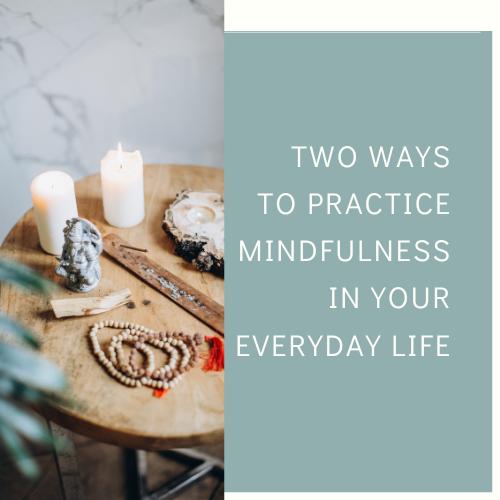Mindfulness, a technique to improve well-being
Mindfulness, a technique to improve well-being
What is mindfulness, and how, as a technique, can it improve well-being?
Here are a few statistics from the May 28, 2020 article by Forbes online magazine as conducted by Pew research. Forbes reports that 70% of Americans experience economic stress. More than one-third of Americans experience anxiety, depression, or both since the COVID-19 pandemic. Of those surveyed, 18% experience anxiety more or all of the time in the past week. Stress has become an increasing problem. So, what is stress, and how does this affect us?
The systems that are affected by stress are the: autonomic nervous system (ANS), the sympathetic nervous system (SNS), and the parasympathetic nervous system (PNS), as well as the brain. The SNS is like an accelerator on a car and is responsible for shallow breathing, increased heart rate, and is known as flight or fight. The PNS is like a brake on a car and is known as freeze or fawn; this decreases the heart rate, and fainting is possible. The brain and gut produce stress hormones. When these exposed to these hormones for long periods can create health, cognitive, and emotional impairment. These hormones can interfere with sleep, mood, and negatively impact our memory. When we experience chronic stress, the body does not have the chance to rebalance itself. Mindfulness helps to reset the autonomic nervous system and reduce the production of stress hormones.
Meditation and mindfulness author Jon Kabat-Zinn defined mindfulness as "paying attention in a particular way; on purpose, in the present moment, and nonjudgmental." Bob Stahl and Elisha Goldstein describe mindfulness as "being fully aware of whatever is happening in the present moment, without filters or the lens of judgment." Merriam-Webster defines mindfulness as "the practice of maintaining a nonjudgmental state of heightened or complete awareness of one's thoughts, emotions, or experiences on a moment-to-moment basis." To break this down a bit further, awareness "is the ability to perceive, to feel, or to be conscious of events, objects, thoughts, emotions, or sensory patterns" (Wikipedia). The word present in the context of our discussion on mindfulness, means "the time currently existing or in progress" (Merriam-Webster, online). While nonjudgmental means "avoiding judgments based on one's personal and especially moral standards" (Merriam-Webster, online). Therefore, by practicing mindfulness, it allows us to experience each moment without creating judgments or labels for our thoughts, feelings, and the events in our life.
The benefits of having a consistent mindfulness practice include a reduction of the following: chronic pain, stress, symptoms of anxiety, skin ailments, and digestive problems. Consistent mindfulness practice can enhance the following: a sense of empathy, well-being, preventing relapse in depression and addiction, immune function, and quality of life.
To develop a formal mindfulness practice, try designating a specific time of day and duration. It is also best to practice at the same location. For example, practicing at 6:00 am for 5 minutes in the bedroom. If you are new to practicing mindfulness, pick one technique for your practice, and try it for two to four weeks.
There are a variety of mindfulness techniques, below are two.
Breath awareness: Sit with the spine and front body lengthened, with your legs crossed, sitting in a chair with the feet flat on the floor, or lie down. You may have your eyes open or closed. If keeping your eyes open, gently gaze at an object; if closed, lightly press the eyelids together. The breath will be in and out through the nose while keeping your lips pressed together. Relax the jaw, throat, and tongue. Allow your shoulders, upper back, and arms soften, resting your hands comfortably on your lap, or with the arms alongside your body with the palms up. Begin to bring awareness to your breath by feeling the coolness against your nostrils as you inhale, and the warmth as you exhale. Feel your belly rise as you breathe in and relax as you breathe out. If you are new to this practice, try it for one minute and increase your time slowly.
Cultivating loving-kindness towards yourself and or others. If you have difficulty expressing loving-kindness towards yourself, begin with someone you have a deep affection for first, then extend loving-kindness towards yourself. To practice, start with the above breath awareness exercise, then visualize or sense a loved one or yourself a few feet in front of you. Focusing on the area of your heart, take three long, slow deep breaths, then recite the following and extend the sense of unconditional love as best as you can:
May you (I) be well,
May you (I) be happy and peaceful,
May you (I) be free from all danger and suffering,
May you (I) be filled with loving-kindness.
With grace on your journey, namaste,
Susan
Be the first to post a message!
